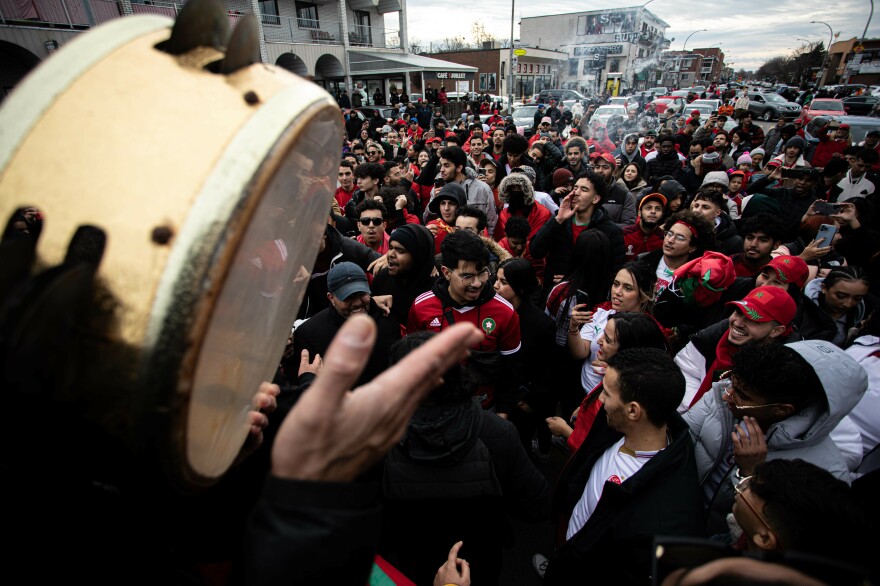Morocco's success at the World Cup has turned the Atlas Lions into a Cinderella team, winning over fans who love a good underdog story. The historic run also is thrilling far-flung Moroccans, giving them new reason to be proud of their home nation.
"As a Moroccan who came to Canada in September 2018, I've never felt this sense of belonging to my country as much as today," Abdelali Essaouis tells NPR.
Essaouis is a photographer who lives in Montreal, home to the largest Moroccan community in North America. For the past few weeks, he's been busy capturing scenes of glee and raucous celebration as Morocco, the world's No. 22 team, defied the odds to become one of the World Cup's final four.
"The day we won against Portugal, I met non-Moroccans waving the Moroccan flag, everybody was congratulating me," Essaouis says. "That brought tears into my eyes, because I felt like the whole world was happy about our victory."

In upsetting European powerhouses Spain, Portugal and Belgium, Morocco also defeated countries with long histories of colonizing swaths of Africa. And its semifinal opponent, defending champion France, is a nation that once colonized Morocco.

While Morocco's fans can (and do) joke about taking it to the colonizers, Essaouis says the team's success resonates more deeply than that. After all, by reaching the semifinals in Qatar, Morocco did what no other Arab or African nation has ever done.
"It's going down in history as an Arab nation that has achieved something for the first time in an Arab World Cup, on Arab land," he says. "This will also forever change the mindset of Moroccans and other Africans, that winning and achieving is a possibility."
Morocco's World Cup squad has deep ties to its diaspora communities: more than half of its players were born in other countries.
More of Morocco's estimated 5 million expatriates live in France than anywhere else. For Moroccans who opt to immigrate farther west, Montreal, where French is the official language, is an appealing destination. More than a third of Moroccans speak French, according to the International Organisation of La Francophonie.
Morocco's World Cup exploits have sent jubilant fans living abroad into a tizzy, waving red and green flags at impromptu pep rallies. Their voices echo the thousands of Morocco fans who thronged Doha's stadiums, roaring at their team's successes and urging them to new heights. Other African nations also have rallied behind the Atlas Lions, even sending official congratulations to the government.
Regardless of the outcome of Wednesday's match, Essaouis says the team's unprecedented progress has him feeling more optimistic about his home country.
"What's happening right now is historical. The whole world is supporting us, and just because of that support, to me, we already won the World Cup," he says.
Copyright 2023 NPR. To see more, visit https://www.npr.org.












